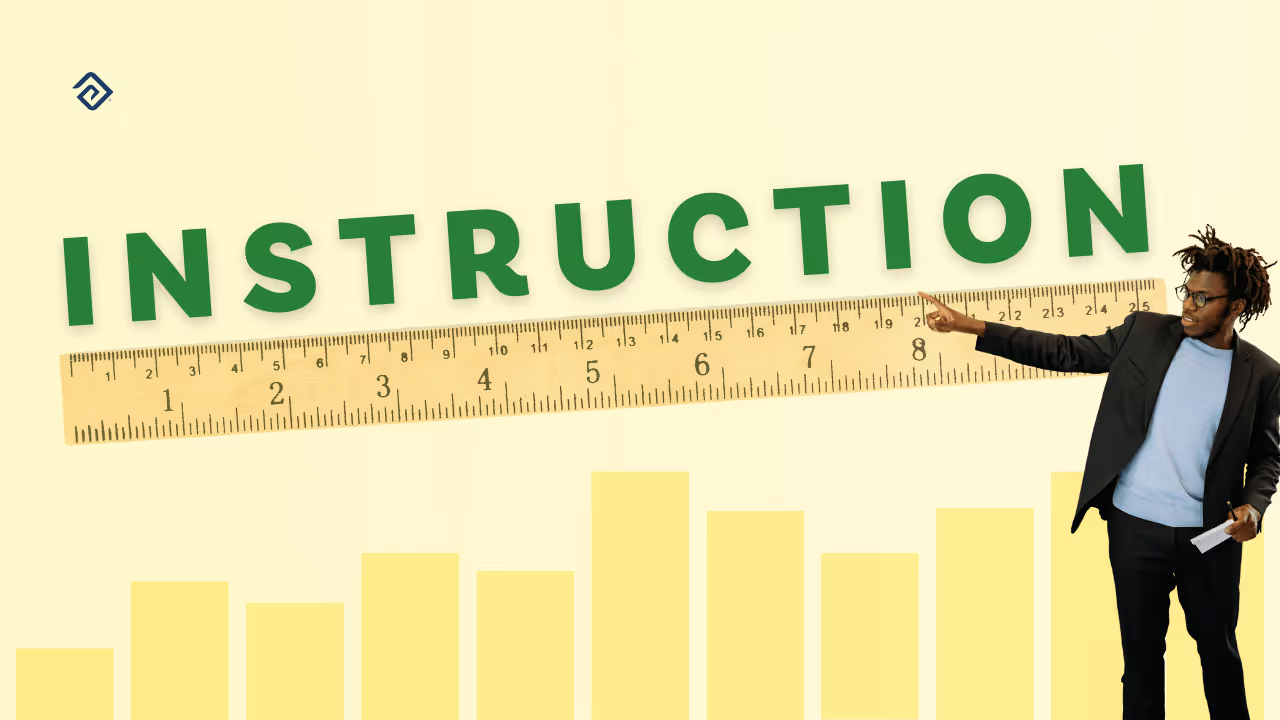What Makes an Effective Teacher? Nurturing Excellence in Instruction for Student Success
The path to educational excellence is built on the dedication and expertise of effective teachers. These educators are the heartbeat of every thriving school, driving student achievement and shaping the future of society at large. But what exactly makes an “effective teacher”? Understanding this is crucial for instructors to provide the most value to learners.
That’s why we’re exploring everything you need to know about exceptional teaching — from the essential qualities of impactful educators to the supportive institutional practices that nurture these attributes. With this in mind, you can empower your staff to perform at their best and help students reach their full potential.

The Evolution of Effective Teaching and Student Needs
Great teaching goes beyond simply sharing knowledge; it's a dynamic, responsive practice that deeply influences student outcomes — and so much more. Research highlights that over an educator's career, they impact more than 3,000 students, with 83% of students recognizing teachers for boosting their confidence and self-esteem.
So, what makes teaching truly effective? It's about understanding and meeting the diverse needs of learners, creating an environment that sparks engagement, critical thinking, and a passion for learning. These practices profoundly impact student success, according to research from the Journal of Educational Administration linking teacher effectiveness to improved academic achievement.
Teachers wield incredible power to shape future generations, a responsibility that carries the chance to leave a lasting legacy as well. Beyond enhancing academic outcomes, they play a crucial role in promoting students' social and emotional skills, resilience, and lifelong learning habits. This equips learners to take on any future challenges with assurance.
The Goals and Priorities of Effective Educators
Given the broad impact of top educators, let's take a closer look at their main goals and priorities today:
- Fostering student engagement and creating a positive classroom culture: Good teachers strive to spark curiosity and collaboration in a safe learning environment. This includes making learning more exciting and inclusive, which reflects a shift toward classrooms that cater to diverse learning styles.
- Providing individualized instruction and incorporating real-world relevance: Instructors personalize learning experiences to resonate with each student's unique interests and needs. They aim to foster a deeper understanding and application of knowledge by linking lessons to practical, real-life scenarios.
- Building positive relationships with students: Establishing trust and support is key for educators, especially considering the pivotal role of emotional well-being in students’ success and personal growth. As a result, instructors strive to create environments where every learner feels valued and empowered.
- Preparing learners for success beyond the classroom: Beyond academic knowledge, educators equip students with critical thinking abilities, problem-solving skills, and interpersonal competencies. These are essential for students as they navigate challenges and opportunities in quickly changing environments.
- Leveraging technology effectively: To reflect a forward-thinking approach, instructors are embracing digital tools. This not only boosts learning experiences but also ensures students develop technological literacy — which is important for their future in the digital age.
7 Qualities of Exceptional Instructors and Their Impact on Student Success
Effective teaching encompasses a range of qualities that make instruction exceptional and drive learning outcomes. Let's dive into the characteristics that define highly effective teachers today:
- A passion for teaching and empowering students: Effective teachers bring a contagious enthusiasm to the craft, inspiring students to excel both in and outside the classroom. Their passion creates a love for learning that extends beyond academics.
- Expertise in subject matter: With deep knowledge and mastery in their field, great teachers simplify complex topics and make lessons more engaging. This expertise helps learners connect academic concepts to real-world relevance.
- Strong communication skills: Exceptional instructors communicate clearly and ensure every student stays on track. They foster an inclusive environment where every voice matters.
- Empathy and patience: An effective educator understands students' challenges and patiently guides them through obstacles. This not only creates a supportive classroom but also builds learners' confidence and resilience.
- Adaptability and creativity: Great instructors adjust their methods to meet diverse student needs, which encourages both creativity and personalized learning. This flexibility ensures every learner has what they need to thrive while maintaining high expectations for achievement for every student.
- Commitment to lifelong learning: A cornerstone of good teaching involves staying updated with educational trends. Highly effective teachers continuously improve their skills to deliver top-notch instruction — which can inspire students to do the same.
- Effective classroom management and organizational skills: Outstanding teachers maintain a well-organized and disciplined classroom, so students get the most value out of their learning time. Plus, these organizational skills create a more focused and productive environment.
The impact of these qualities on student success can’t be overstated. Teachers who embody them do more than just boost academic outcomes; they also foster more well-rounded individuals. This influence shapes the future paths of their students and the broader community alike.

Strategies for Cultivating Teaching Excellence in Institutions
Several key traits define a great teacher, and the good news is any instructor can develop them — even if they don’t come naturally. Here are a few top strategies to help your instructors excel in 2024 and beyond:
Personalized Professional Development Programs
Tailoring your professional development opportunities helps you meet each teacher's needs and goals. This might include personalized training sessions, workshops, and courses to address specific areas for improvement — while equipping teachers with new skills. This ensures your training is relevant and impactful, benefiting both educators and students.
Mentorship and Collaboration
Don't underestimate the value of mentorship programs for teachers at all career stages. Consider pairing experienced educators with new teachers to facilitate knowledge exchange and provide essential support. You might also encourage collaboration among teachers to share best practices and innovative teaching methods, which creates a more effective teaching community in the long run.
Providing Resources and Support
Ensure your teachers have the materials, technology, and support they need to deliver high-quality instruction. Provide access to more than just digital tools and instructional materials, but also professional development resources. Administrative support can also alleviate some burdens, freeing educators up to focus on what matters most — teaching.
Recognition and Incentives
If you want to maintain morale and motivation, it’s important to recognize and reward teachers for their hard work and achievements. Implement incentive programs like awards, bonuses, and public recognition to encourage excellence. This also creates a more positive and supportive school environment.
Encouraging Innovation
In a sector that’s always evolving, you want to promote a culture of innovation. This starts with encouraging instructors to experiment with new instructional strategies and technologies. And to foster an innovative mindset, you can provide opportunities for attending conferences, participating in pilot programs, and collaborating on research projects.
Feedback and Growth Mindset
Constructive feedback is the cornerstone of professional growth. To establish a culture of continuous improvement:
- Schedule bi-weekly peer reviews for shared learning
- Use anonymous surveys for genuine insights
- Conduct one-on-one meetings to set goals and provide feedback throughout the year
This ultimately encourages a growth mindset, where teachers see challenges as opportunities to learn and grow.
Evaluation Process
Teacher development isn't a one-time thing; it's a continuous process. That means implementing a comprehensive evaluation system is crucial to identifying strengths and areas for improvement. Regular evaluations with actionable feedback give teachers a clear understanding of their performance and how to enhance teaching methods. This also helps address gaps in instructional quality and ultimately improves student achievement.
Remember that making these strategies work requires providing the right resources and support along the way. By embracing a comprehensive approach to teacher development, you can ensure your educators are well-equipped to tackle the challenges of modern teaching.

The Multifaceted Benefits of More Effective Classroom Instruction
The ripple effects of effective classroom instruction go far beyond students' immediate learning outcomes. Let’s explore some of the stakeholders who benefit most from high-quality teachers:
Leaving a Lasting Impact on Student Success
For students, the benefits of outstanding teachers transcend academic achievement. Effective teaching ignites curiosity, sharpens critical thinking, and equips learners with skills crucial for lifelong success. What’s more, quality instruction nurtures a positive self-image and resilience, so students can take on future challenges with confidence.
The Rewards of Teaching Effectiveness for Instructors
Teachers also reap the advantages of effective classroom instruction. Engaging in high-quality teaching practices brings them greater job satisfaction and a deep sense of professional fulfillment. This positive cycle boosts educator morale and motivation, which helps to create a more lively and dynamic classroom atmosphere. Moreover, since instructors often serve as role models and mentors in their communities, improving teaching effectiveness enhances their influence overall.
Shaping Better Communities and Futures
Effective teaching strategies also benefit the broader community by nurturing educated, skilled, and socially responsible citizens. This prepares learners for success beyond high school while contributing to enhanced economic growth, reduced inequality, and strengthened social bonds.
Empower, Evaluate, Evolve: Transforming Teaching Excellence
The journey toward teaching excellence is a continuous cycle of assessment and growth. And by providing educators with the resources, training, and encouragement they need, you lay the groundwork for high-quality instruction and institutional success. It also fosters a culture of innovation and excellence that motivates instructors to keep striving for improvement.
So, what role does evaluation play in this cycle? It provides a structured way to assess teacher effectiveness and identify areas for improvement. That’s where Education Advanced can help: Our Evaluation solution is designed to streamline and boost the teacher review process. Through personalized goal setting and reflections, data-driven conversations, customized portals, and more, the solution paves the way for targeted professional growth and enhanced teaching practices.
Your Trusted Partner in Instructor Evaluation
Effective teachers are at the heart of institutional excellence, embodying the qualities and practices that inspire students to achieve their full potential. But, the path to teaching greatness is multifaceted and ongoing.
Education Advanced is your supportive partner in this transformative journey, offering staff evaluation software designed to help your instructors thrive. Our software helps you identify areas for improvement, celebrate teaching successes, and support professional development. By prioritizing teaching excellence and leveraging the support of a trusted partner, you can ensure you’re providing the best possible learning experiences for your students.
Ready to get started? Learn more about our Evaluation solution or schedule a risk-free demonstration today.
More Great Content
We know you'll love






